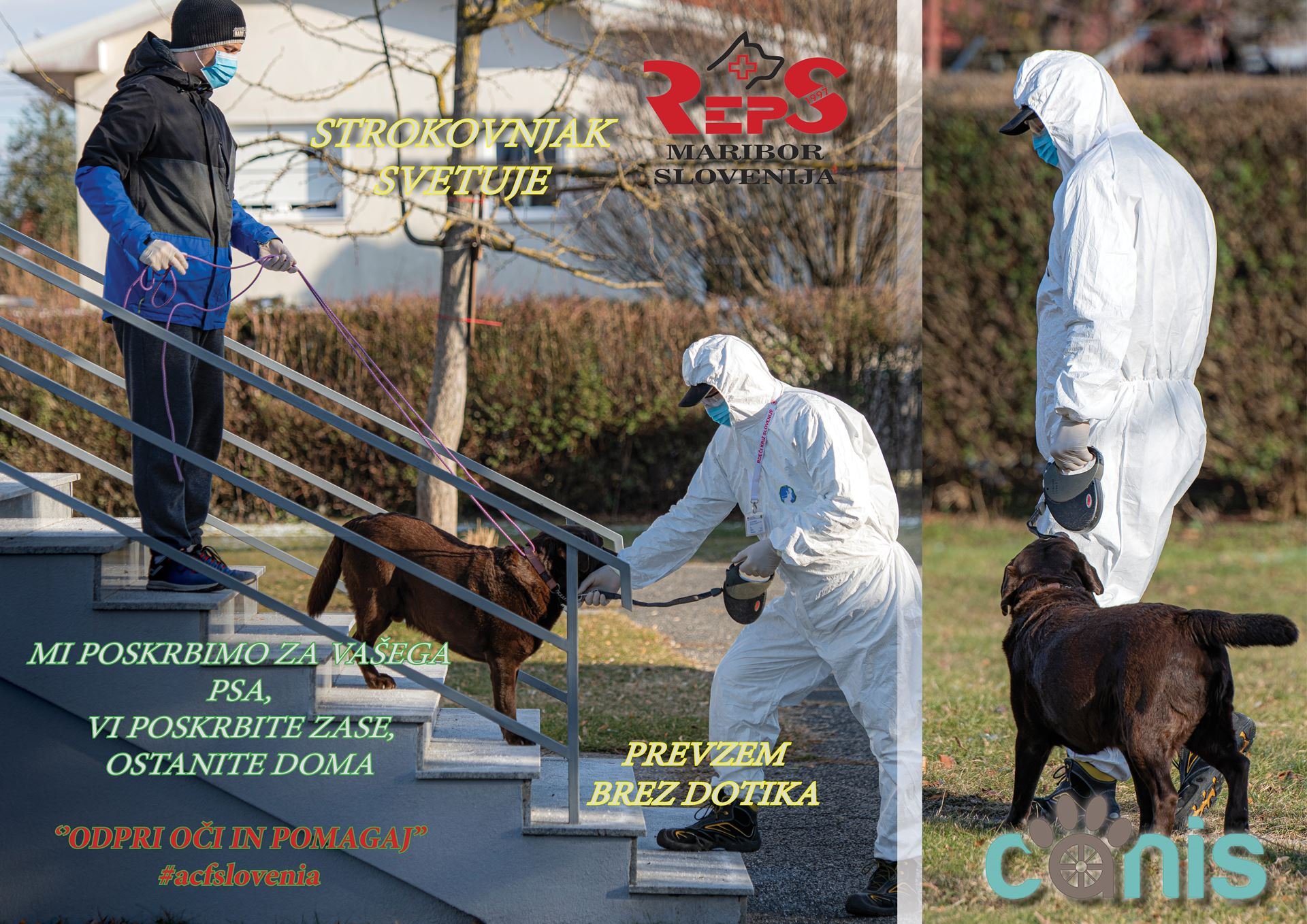Call: Micro or “rapid response” projects
Project Duration: 2 December 2020 – 1 June 2021
Budget: 5,000.00 EUR
On October 19th, 2020 in Slovenia for the second time COVID-19 epidemic was declared. There is still a lot of unknown regarding coronavirus transfer, especially from human to dog and vice verse. That is why researches, which will clarify ways of infection, persistence of the virus in environment and modes of action of the virus, are very important. To get the knowledge of how to deal with the dogs, which are living with infected persons, we addressed Veterinary Faculty Ljubljana. Our decision is to help invalid persons, who are hospitalized or in quarantine due to coronavirus and have an assistance dog or a pet dog. They are really concerned about their, potential coronavirus infected dogs, which were in contact with infected person(s). Testing of home animals from households, where infection is already confirmed, is possible and also in accordance with recommendations of World organization for animal help (OIE). We know that transfer of coronavirus is spreading from human to human, but animals, who are living in close contact with human, are also susceptible for infection. Due to this fact, special caution is needed. In handling animals and taking care for them, basic hygiene measures must be executed. These includes regular hand washing before and after handling with animals and/or with food for them. We should avoid hugging and petting animals, also sharing our food with them is forbidden. Somewhere in the future results of researches will help in understanding if SARS-Cov-2 develops any kind of disease also on animals and for ways of transfer from human/to dog/ to human. Considering last known data, home animals, infected with SARS-Cov-2 can stay in home care, as they don't present higher risk for transfer and spreading of coronavirus. This is where we step in, because these dogs have to be taken to at least shorter walks, perhaps take them to veterinary or put them to temporary care, until infected invalids are not capable to do that by themselves again. Through our activities, invalid person gets trust and he knows that his assistance dog will be cared for in a suitable and professional way (Proposal to NSAI National Committee E Walsh, J Stephens 20200806).
Contact: Darinka Lečnik-Urbancl






